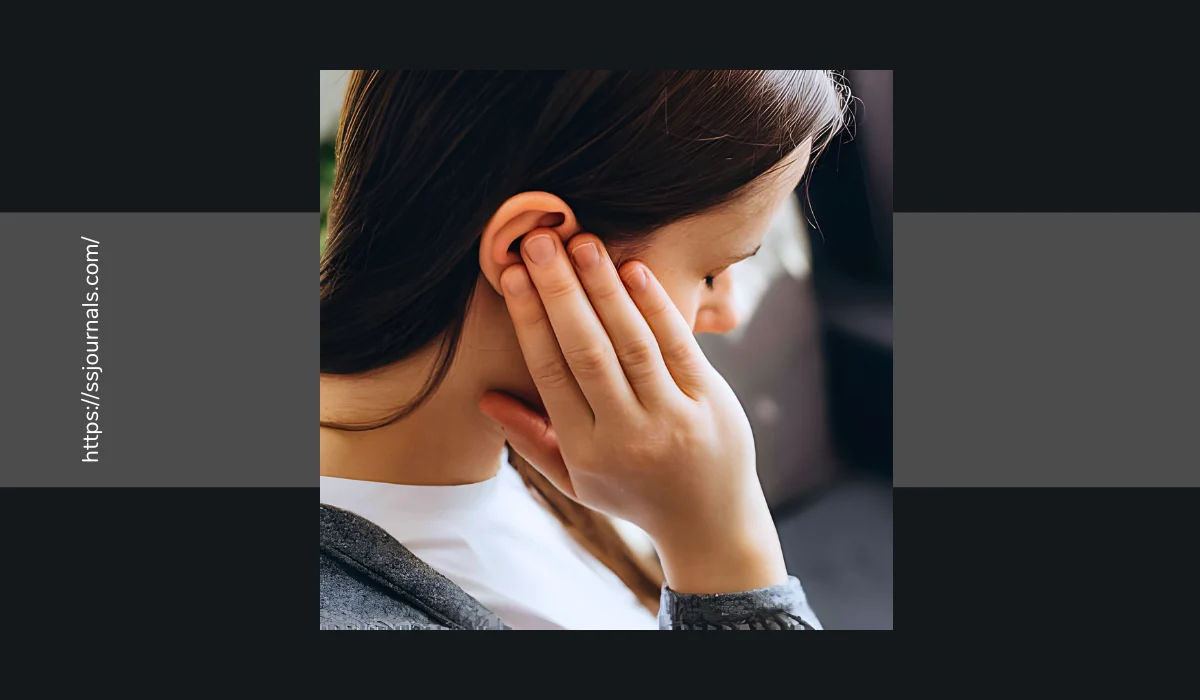Ear fluttering, also known as vibrating ear or spasming ear, is a strange and uncomfortable sensation in the ear that feels like a fluttering or vibration inside the ear canal. This odd vibration ear is often caused by eustachian tube dysfunction, ear infections, or even early hearing loss.
If you experience frequent bouts of ear fluttering, it’s important to understand the potential causes so you can take steps to stop the fluttering and prevent it from happening again.
What Causes Ear Fluttering?
Ear fluttering is typically caused by conditions such as eustachian tube dysfunction, ear infections, or hearing loss. The eustachian tube connects the middle ear to the back of the nose and throat.

When the eustachian tube becomes blocked or inflamed, it can cause odd sensations in the ear, like fluttering, popping, clicking, or muffled hearing. Ear infections, both viral and bacterial, can also irritate the eardrum and inner ear, leading to fluttering.
Even early stages of hearing loss from age or noise exposure can cause the nerves in the ear to act up, creating fluttering.
Tips to Stop Ear Fluttering
The techniques used to stop troublesome ear fluttering depend on the underlying reason behind it. But in general, there are a few effective at-home remedies and preventative steps worth trying.
Relieve Eustachian Tube Dysfunction
Since eustachian tube issues are the #1 cause of ear fluttering, focus on relieving dysfunction here first. Strategies include:
- Taking oral decongestants for a short period to reduce swelling from colds or allergies. Pseudoephedrine and phenylephrine are common options.
- Using nasal steroid sprays if allergies are contributing to congestion and inflammation related to ear fluttering episodes.
- Trying eustachian tube exercises like the Valsalva maneuver: close mouth, pinch nose shut, and gently blow out as if popping ears. Other exercises include swallowing, yawning, or chewing gum to activate the muscle that opens the tubes.
- Avoiding rapid air pressure changes that can block eustachian tubes, like air travel or scuba diving, until fluttering resolves.
These measures to open the eustachian tubes also facilitate fluid drainage from the middle ear space, lowering irritation of nerves that could prompt fluttering feelings.
Treat Underlying Ear Infections
Since both bacterial and viral ear infections can cause annoying ear fluttering, properly treating infections often provides symptom relief.
For bacterial infections, use the full course of prescription antibiotic eardrops or oral antibiotics as directed by your doctor. Applying warm compresses can also help soothe irritation and promote healing. Over-the-counter pain relievers like ibuprofen or acetaminophen can further ease discomfort during infections.
Viral ear infections have to resolve on their own, but analgesics, decongestants, antihistamines, and warm compresses benefit them too. See your doctor if symptoms worsen or don’t improve after a week. Severe infections might warrant antibiotic intervention to prevent complications.
Prevent Further Hearing Loss
Unfortunately, sensorineural hearing loss from aging or noise exposure can’t be reversed once ear fluttering develops. However, preventing additional damage to the delicate hair cells in the cochlea could keep the fluttering from worsening over time.
Consider wearing hearing protection devices like noise-canceling earmuffs or custom-fit earplugs whenever exposed to sounds over 85 dB. This includes noisy work environments, concerts, sporting events, power tool use, commercial or recreational vehicle driving, etc.
This protects hearing from increased occupational and recreational risks. Routinely get hearing tests done by an audiologist to monitor age-related changes too. They can advise if hearing aids become necessary to offset deficits.
Hearing aids help amplify sound so the ears strain less to pick up volume changes and flutter less as a result. Implement communication tactics to reduce hearing difficulties around the house.
For example, face the listener directly, minimize background noise during conversations, and use closed captioning on television. This takes strain off the ears so fluttering is less apt to develop.
When to See a Doctor?
If self-care measures don’t adequately relieve chronic ear fluttering, consult an ENT or doctor specializing in hearing healthcare. They can conduct advanced tests to evaluate causes of fluttering like:
- Tympanometry: Assesses middle ear function by measuring eardrum response to air pressure changes. Checks for fluid accumulation or eustachian tube dysfunction.
- Acoustic reflex testing: Tests involuntary reflex contractions of inner ear muscles in response to loud sounds. This evaluates nerves affecting fluttering sensations.
- Hearing tests: Hearing loss often accompanies eustachian tube disorders associated with fluttering.
Based on the results, they may recommend interventions like:
- Eustachian tube inflation with a small balloon to improve airflow.
- Hearing aids are tuned to reduce fluttering symptoms.
- Medications like steroids or allergy treatment.
- Surgery if structural abnormalities underlie fluttering.
Conclusion
Living with frequent bouts of annoying ear fluttering takes a toll on your comfort, focus, hearing, and more. Since ear fluttering usually stems from treatable problems like eustachian tube dysfunction, ear infections, or progressive hearing loss, it’s critical to identify the underlying trigger in your case. This allows you to implement targeted treatment and prevention methods.
Trying eustachian tube exercises, properly clearing up ear infections, and avoiding noise exposure are all examples of techniques to curb fluttering episodes. If self-care approaches fail to provide relief within a couple of weeks, pursuing medical advice is wise. There are advanced diagnostics and therapies at your doctor’s disposal to control stubborn fluttering.
Occasional, brief ear fluttering isn’t too concerning and often resolves on its own. But if episodes become frequent or long-lasting, the fluttering sensation could indicate persisting eustachian tube swelling, recurring infection, or notable hearing deficit requiring intervention.
Since the nerves triggering fluttering reside so deep in the ear, the problem won’t just work itself out without a healing catalyst. An accurate diagnosis and tailored management plan are key to stopping the endlessly frustrating fluttering once and for all.
The next time your ear starts vibrating out of the blue, try some at-home remedies. But follow up with your doctor if it keeps coming back. With the right troubleshooting and treatment, you can mute that annoying fluttering for good. So why continue letting a fixable issue disrupt your hearing and peace of mind?

